
A show about relationships with the land
There are many ways to listen to the show: Listen live on CFRU 93.3 fm broadcasting from the University of Guelph Mondays at 6pm EST or listen to the podcast via Spotify, Apple, or just follow the rss feed.

Ep. 266 : Getting to know Song Sparrows
I have been excited about Song Sparrows for a while. Theirs was one of the first complex songs I learned to identify, and being such a common neighbour on the landscape it’s hard to go a few days without hearing them, even in Winter, but especially in the Spring.
While out today, I came across a couple Song Sparrow tracks in the silt newly laid down by the receding Eramosa River flood waters and it pricked my interest to dig in a little deeper to this common figure in my life.
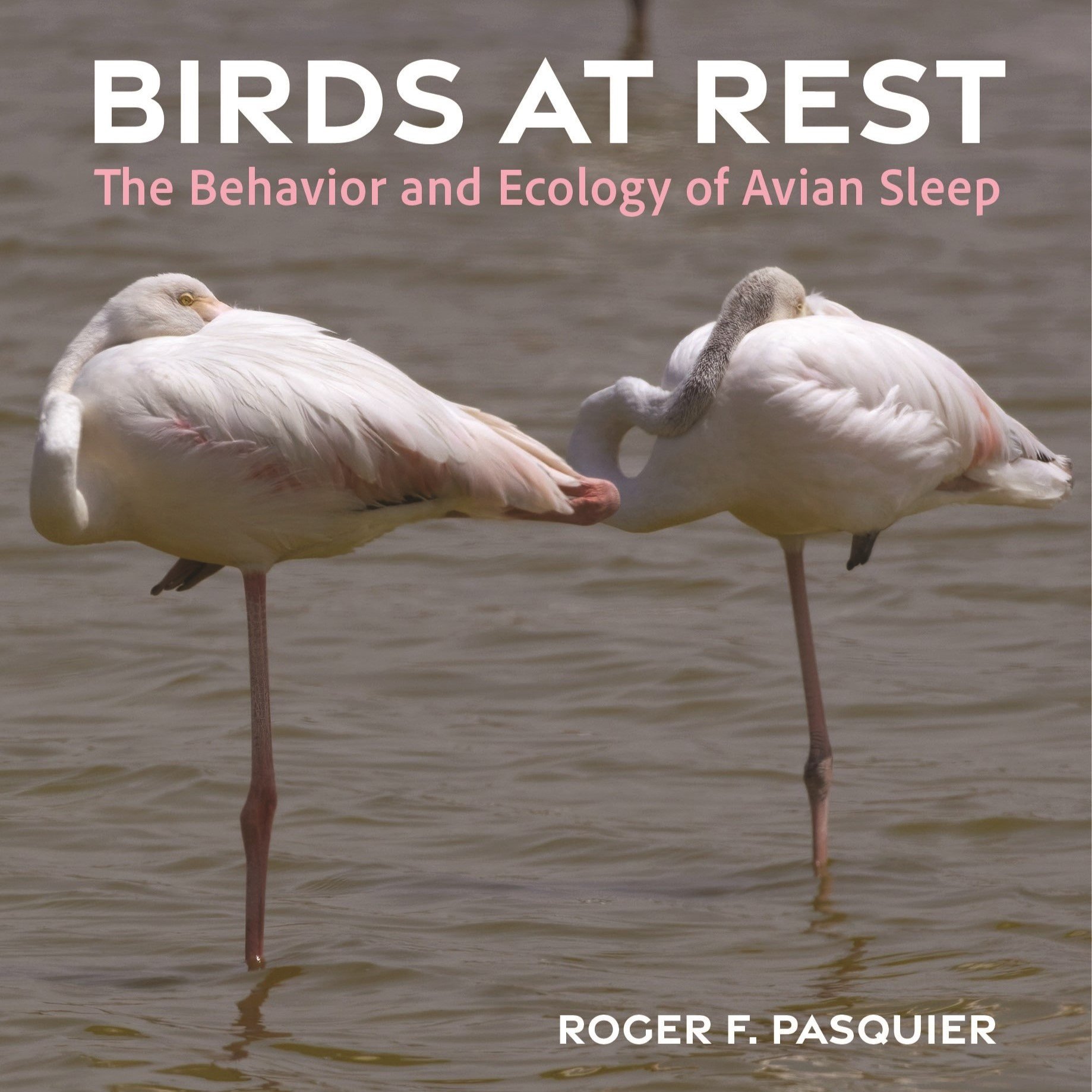
Ep. 262 : Birds at Rest with Roger Pasquier
I have had a lot of conversations with biologists and ornithologists over the years, trying to learn about how different animals sleep. Are the functions of sleep in humans similar to similar animals? What about different kinds of animals, like insects, or birds?
Does photoperiod change the amount of time birds sleep? How does the changing climate affect birds at rest? Do birds dream?
Roger Pasquier has taken the time to collect the information from a ton of various studies into avian rest and sleep and consolidated them into a useful and interesting book, and then taken the time to discuss some of this research on the show.
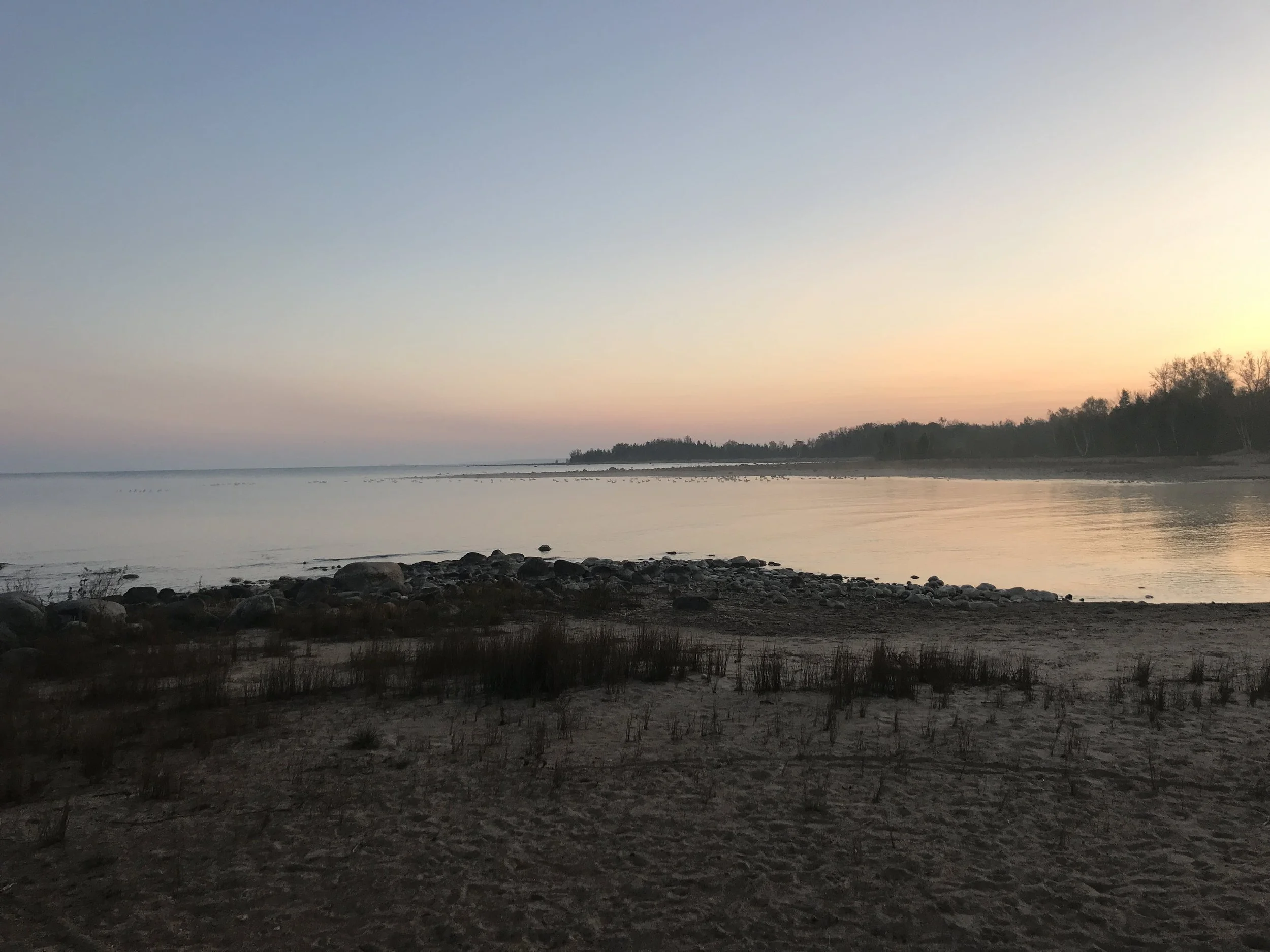
Ep. 255 : Saturday Morning at McGregor Point
Listening to the land, in a very tangible way, can lead to some pretty special moments. Whether it is Black-capped Chickadees scolding an Eastern Screech Owl, hearing the thunder heralding a powerful storm, or the waves washing up on the beach, the land speaks to us through sound in thousands of ways. We just have to stop and listen.
I brought my recorder with me out to McGregor Point on Naadowewi-gichigami/Lake Huron incase any sounds moved me, and of course, such a big beautiful sea tugged at me in the foggy morning. I had to record.

Ep. 249 : Bird Pellets with Ed Drewitt
As an aspiring wildlife tracker I want to know about the signs that animals leave behind. Due to my annoyingly excitable curiosity this includes all animals, and all types of sign. This includes the regurgitated masses of undigested food that makes up a bird pellet.
I got excited to interview Ed Drewitt again. His new book Bird Pellets, out now on Pelagic Publishing, has tons of photos, lots of detailed info and some great hints on how to identify the makers of the pellets we find. While the book was written with a British and Irish context in mind, there are many overlaps with Turtle Island/North American species which I find quite helpful.
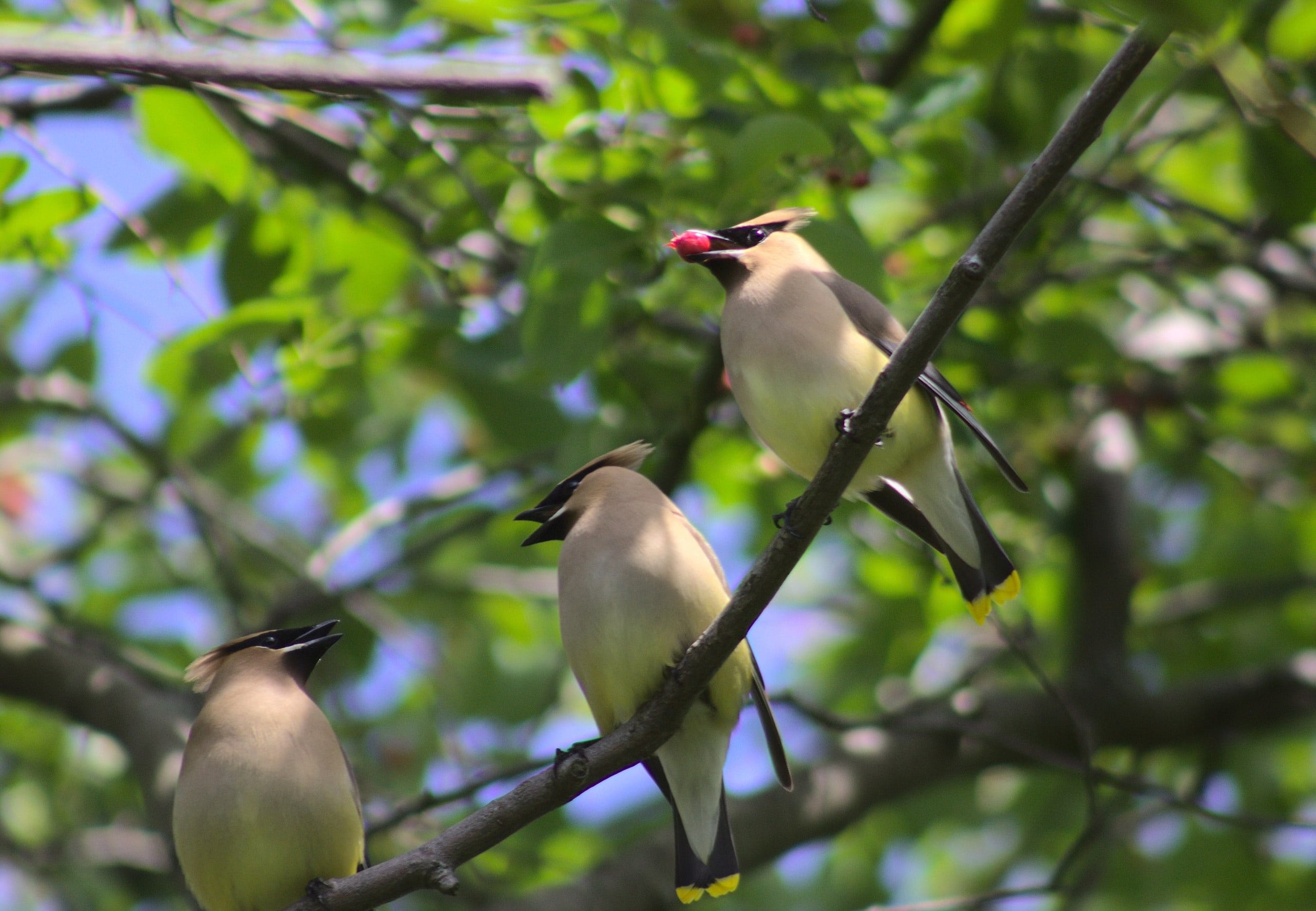
Ep. 245 : Cedar Waxwings in Early Summer
Sometimes Cedar Waxwings are regarded as a “just a..” bird. “It’s just a Cedar Waxwing”, you might hear from another birder who is looking for some elusive flycatcher or late migrant. But if we take the time to pay attention to the mundane, we sometimes see some magic in elusive or even commonplace behaviours.
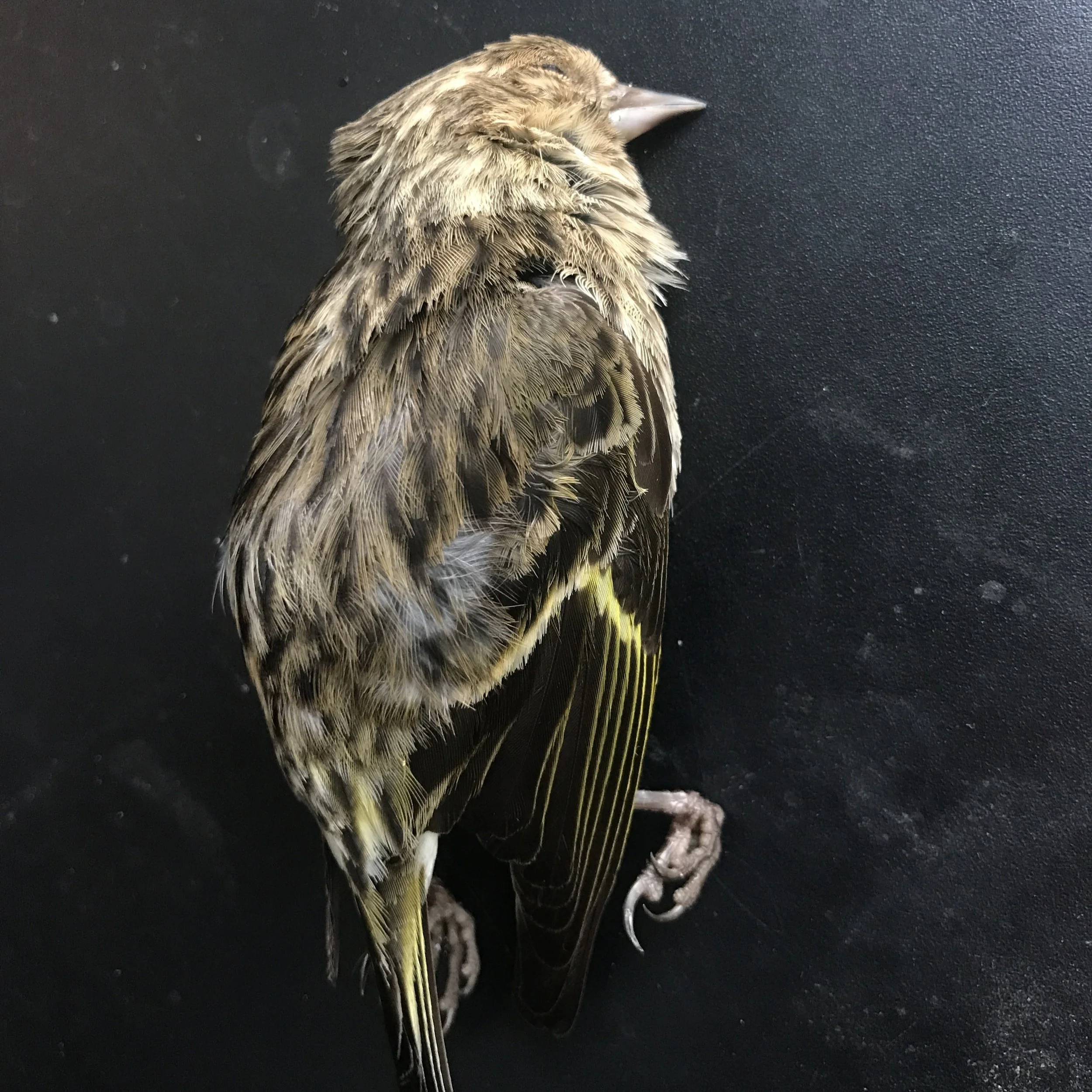
Ep. 235 : Pine Siskins
I just got home from Algonquin Park. I got the privilege to spend the past week tracking Wolves, Moose, Martens, Grouse, Flying Squirrels, and so many other creatures throughout the length of the park. It was magical, inspiring and motivating. Restful as much as exhausting.
One animal I spent some time learning about over the week was the Pine Siskin, as they were my focal species for the week. Sadly on our last day, two dead Pine Siskins were found on highway 60, hit by vehicles as they were on the road, consuming the de-icing salts.
I decided on the way home I would do a little research and make the next show all about them. Here’s to the Siskins and all they’ve taught and inspired in me.
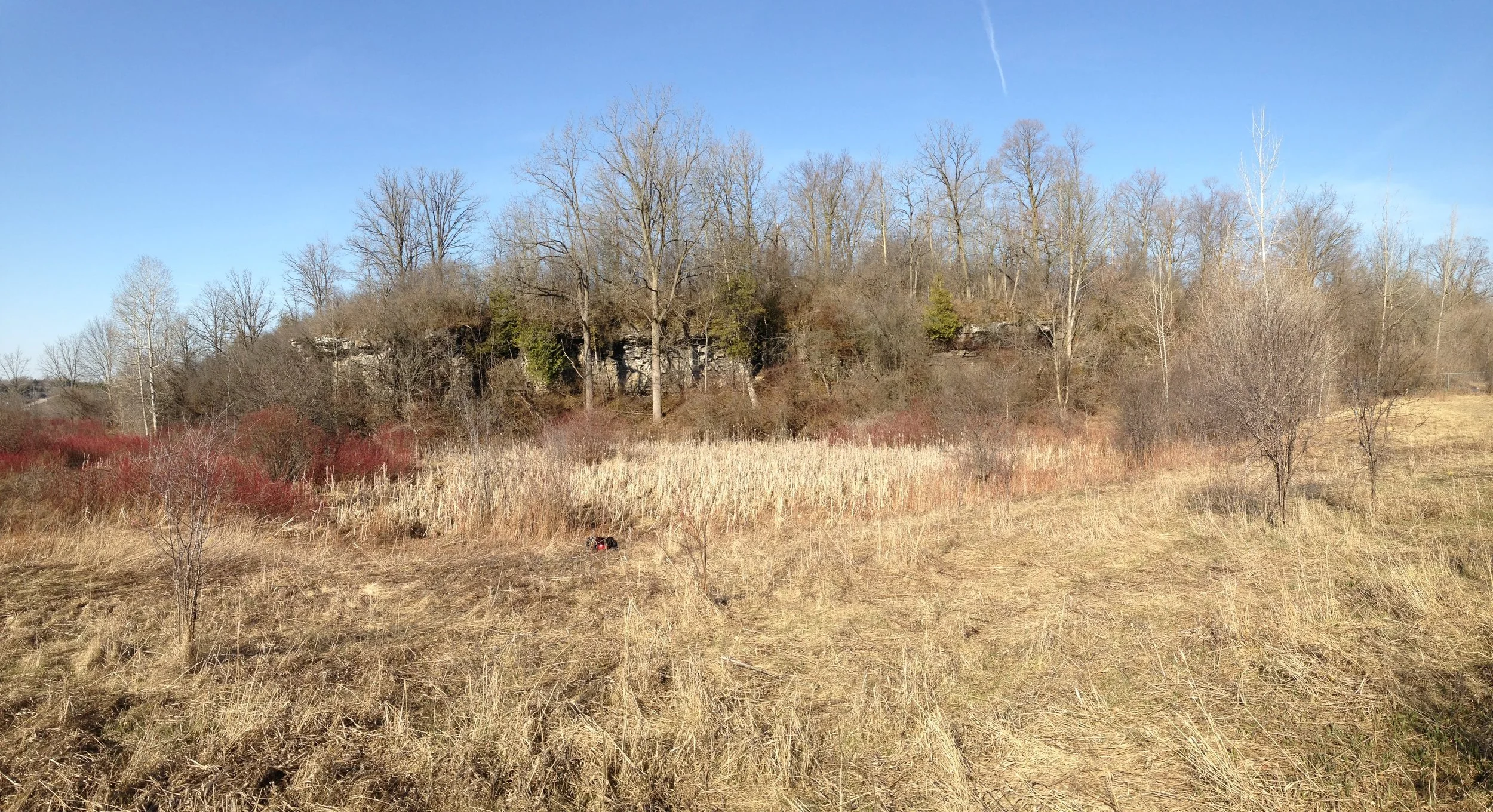
Ep. 215 : Of Soras…
I was out with a couple of friends the evening before. We’d been thoroughly engaged listening to the painfully loud calls of the Spring Peepers when I pointed out an Eastern Meadowlark call to one of my pals. He pulled out his phone and got on the Merlin App to try and id the call a little better. Lo and behold, on the list of birds included in his immediate recorded was a Sora! Now, Soras aren’t too rare, or too interesting to many, but they are a bird I have never seen, never heard, and barely heard of. When we were discussing who a Sora is, all I know was that they were a waterbird that didn’t look like a duck. I imagined something more akin to an American Bittern, but I was way off.
Soras are still mysterious to me, but it was fun to go back to the pond, listen to the birds again the following morning, and bring out some books to learn more and reflect on listening. I hope y’all enjoy it as well.
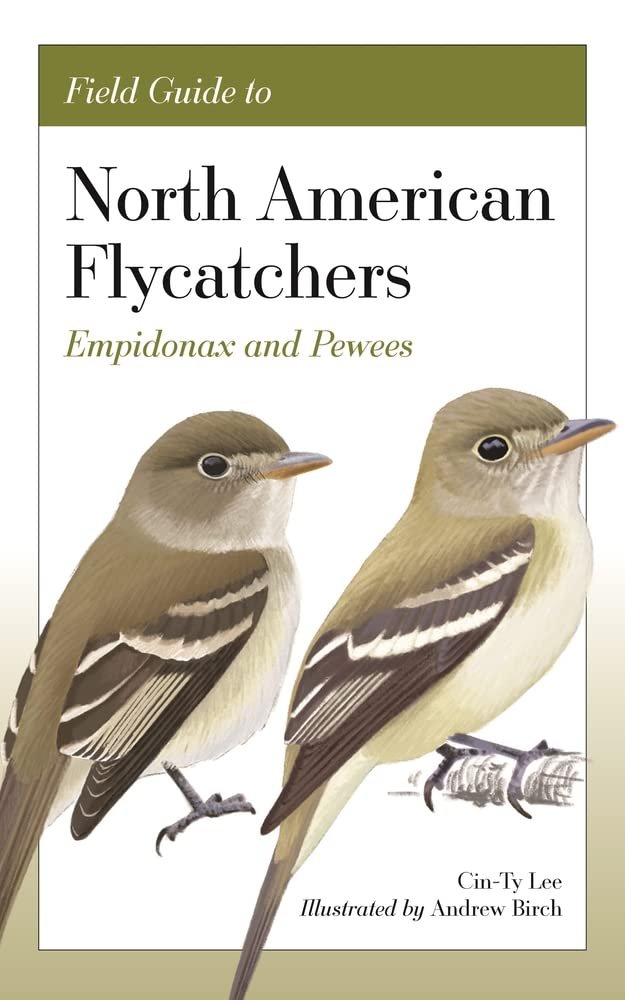
Ep. 214 : North American Flycatchers with Cin-Ty Lee and Andrew Birch
Cardinals, Blue Jays, Robins, Mourning Doves, Mallards, Black-capped Chickadees. Quite common and familiar birds most folks seem to know. One of the reasons is that they have very distinct patterning and physical traits that render them easily identifiable. Even some of the Sparrows can be differentiated by a slightly advanced beginner. Flycatchers? They can be tough. When I see a Yellow-bellied Flycatcher (Empidonax flaviventris) in the woods, despite being one of the more recognizable, determinable Empidonax species, I am still left uncertain, full of doubt and just generally end up calling it a Flycatcher.
I spoke with Cin-Ty and Andrew about their new book and how this new method of identification can help us not only better identify some of the Flycatchers, but also to look at how we regard all birds in ways that encounter them more fully, experiencing them in broader context through investigating narrower characteristics.
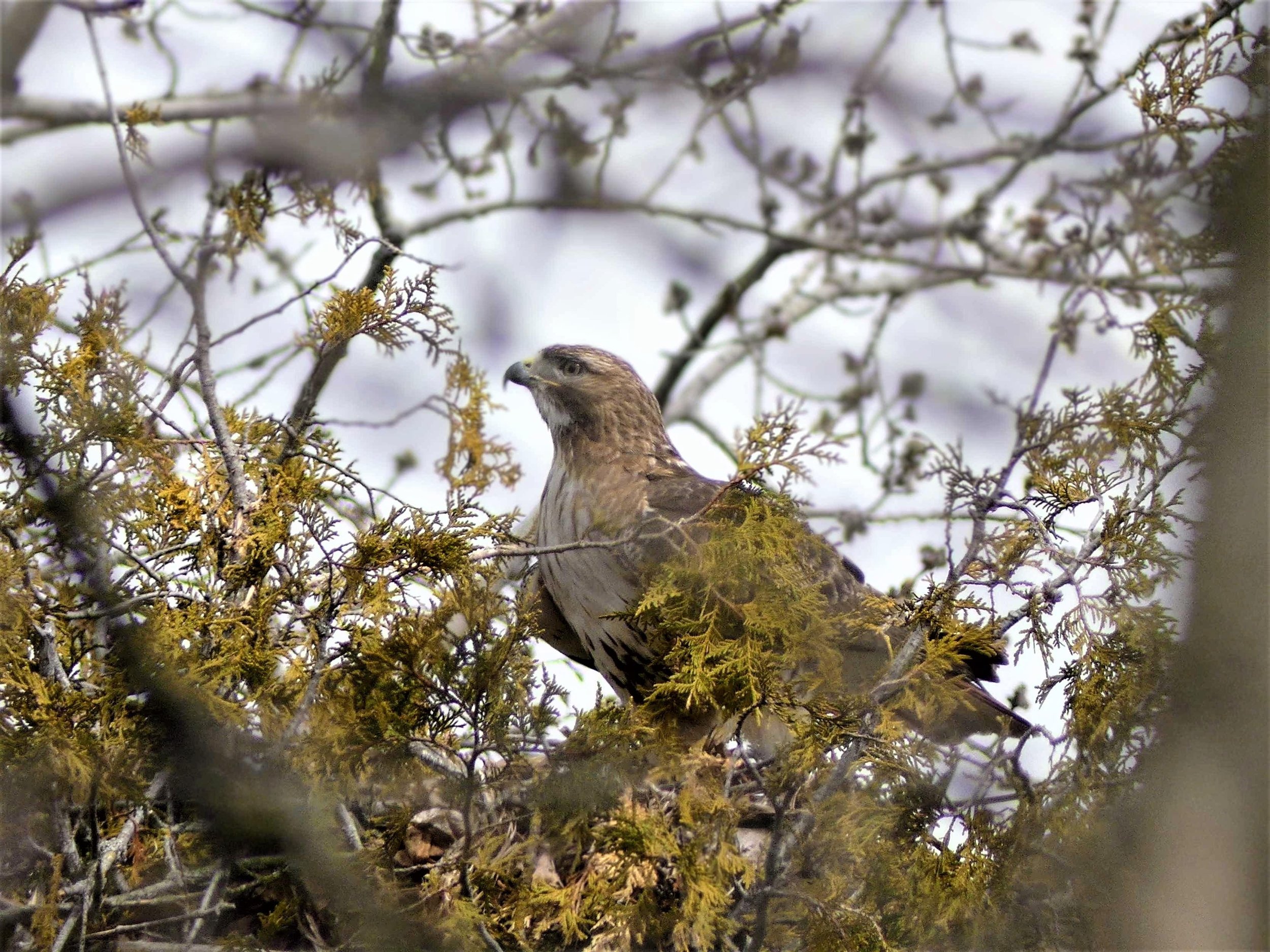
Ep. 213 : Nesting Behaviours of Red-tailed Hawks
Red-tailed Hawks are always exciting to see. However ubiquitous or plentiful they may be on the land, it is always a gift to observe them circling and soaring overhead. I have been noting their behaviours for a few years now, trying to catch a glimpse whenever I can. A couple of years ago I watched a pair eager to find out if they were nesting in the valley I walk or ride on my way into work. I never did find that nest, but I hoped I would in the future.
On Monday, a colleague called over the radio that he was observing two Red-tails building a nest. He later watched as the pair were mating on a different tree down closer to the river. This series of events sparked a great curiosity and enthusiasm between all of my colleagues. We have been trying to find ways to observe, but also not interfere. Trying to research, but not just rely on the books. But as it is still relevant, I decided to hit the books. Thus, this weeks show was created. A deep dive into the nesting behaviours of one of my fav cohabitants.

Ep. 212 : Voices of the Spring Birds
Listening to the more than human world is a fundamental piece of learning from the land. It decenters the human and allows us a chance to participate in the always ongoing conversations between birds, winds, trees, rivers, insects, and all the myriad of forms which inhabit the worlds we too inhabit.
This episode is a return to ritualized listening. While I try to listen all of the time, it’s around this time of year when my ears really pick up on novel sounds, calls and songs which have been missing from my local bioregion since at least the Fall, but some since the previous Spring. The theme of this show, of recording the early morning bird song in the warming days of Spring, recurs every year, and has since the last four years I believe. Its a good ritual to maintain.

Ep. 206 : Pileated Woodpecker Sign
Without much snow so far this winter, my tracking has been shifting towards other sign out on the land. Lately this has been signs on plants, scats, rubs, with a focus on Pileated Woodpecker feeding sign written in the bodies of the trees.
I first noticed this kind of sign along the Bruce trail many years ago, and then again in Algonquin Park. These days, I just see it everywhere, and through sharing what I am noticing with friends, colleagues and students, I am coming to realize that others just aren’t as excited as I am. So, maybe this show is just me sharing the excitement with potential others who may also get stoked to find this awesome sign of a pretty large bird who has made a pretty big comeback.
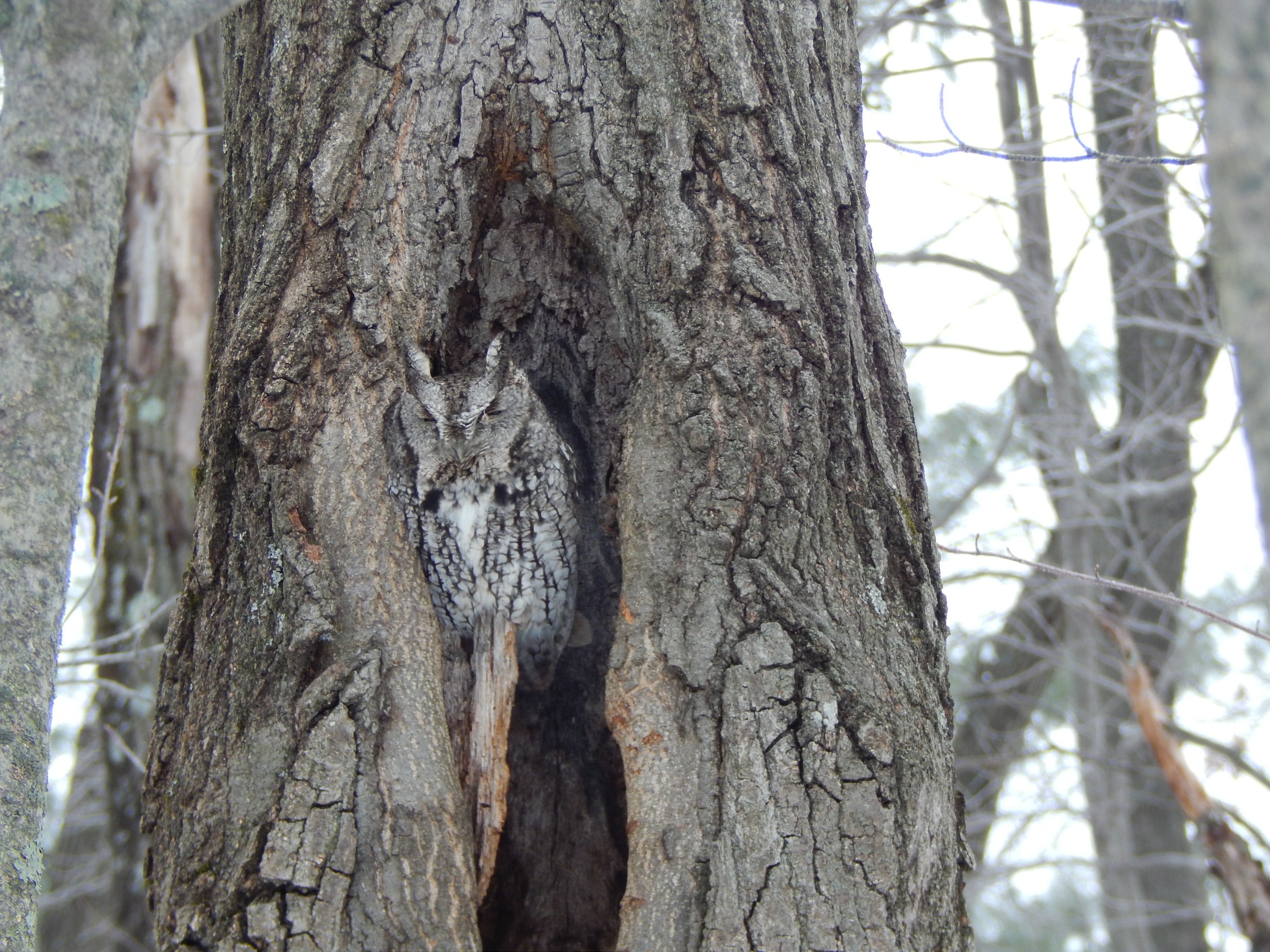
Ep. 205 : Eastern Screech Owl
I have a big affinity for the suburbs (I know, it’s weird), and the Eastern Screech feels like a suburban bird. They hang out along the riparian corridors with the tall older trees, hunting mice, crayfish, songbirds, and whomever else they can catch. I did the same when I grew up in Brampton, Ontario, but instead of mice, crayfish and songbirds, I was hunting for feral Apple trees, Wild Grapes, and anything else I could eat. I bet there were Screech’s along the Etobicoke Creek, too.
Last year, 2022, on January 4th, I recorded a show about Eastern Screech Owls which I only played on CFRU, 93.3 fm, which is the campus-community radio station where my show is broadcast. Turns out I never put it out online for some reason. Now this year, 2023, I was reading in bed when I heard the tell-tale monotonic trill of an Eastern Screech Owl out my window. This inspired me to record this new episode all about Eastern Screech Owls.
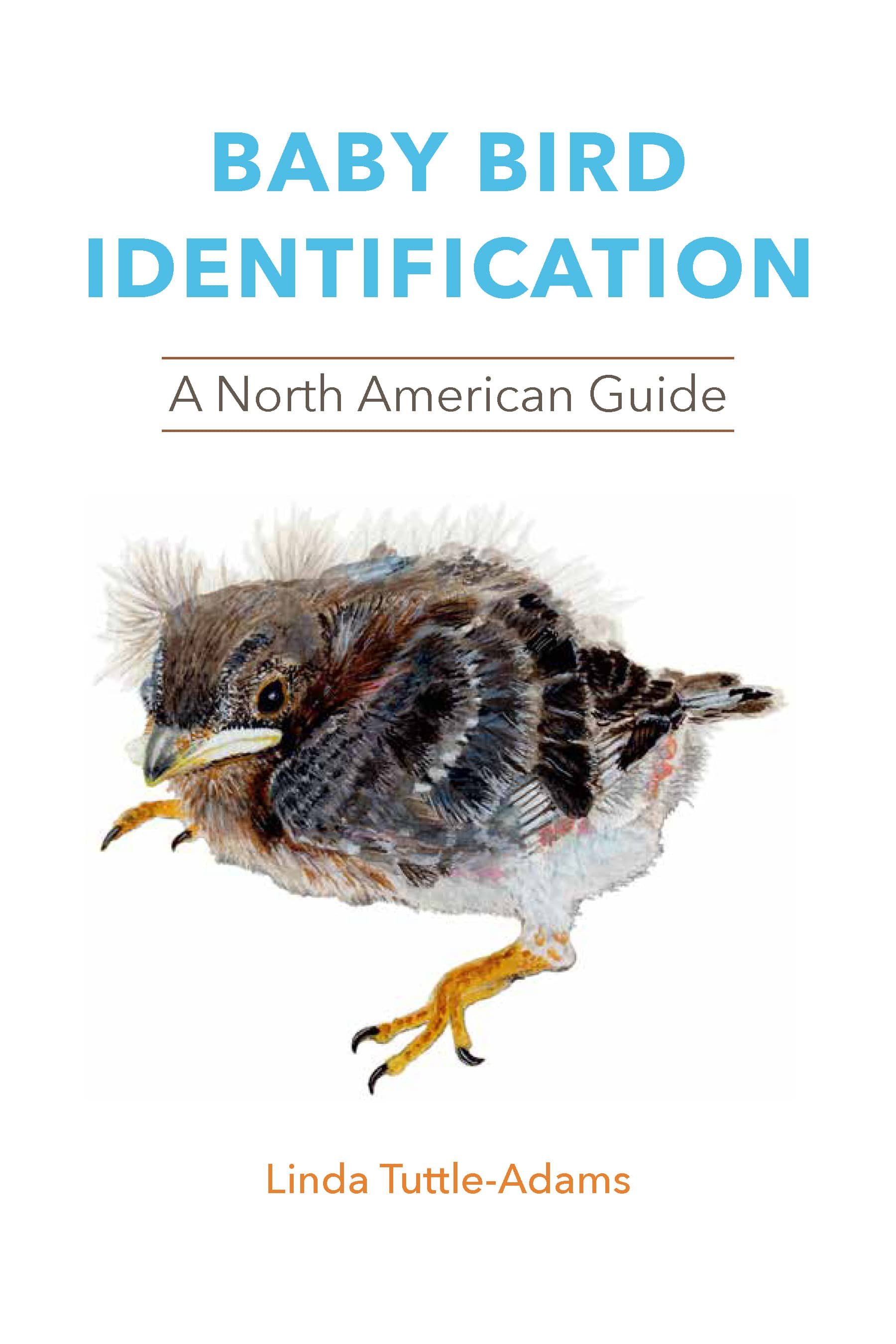
Ep. 202 : Baby Bird Identification with Linda Tuttle-Adams
It can be really hard to identify a baby bird, and that can be problematic in trying to identify the exact care needs the bird requires to flourish. Some birds may only feed their nestlings seeds, where as others require insects. Identification is key to the survival of many of the species of birds found across North America/Turtle Island every year. There are few resources and fewer accessible texts outside of academia to turn to, but with Linda Tuttle-Adam’s new book “Baby Bird Identification - A North American Guide” things just got easier.
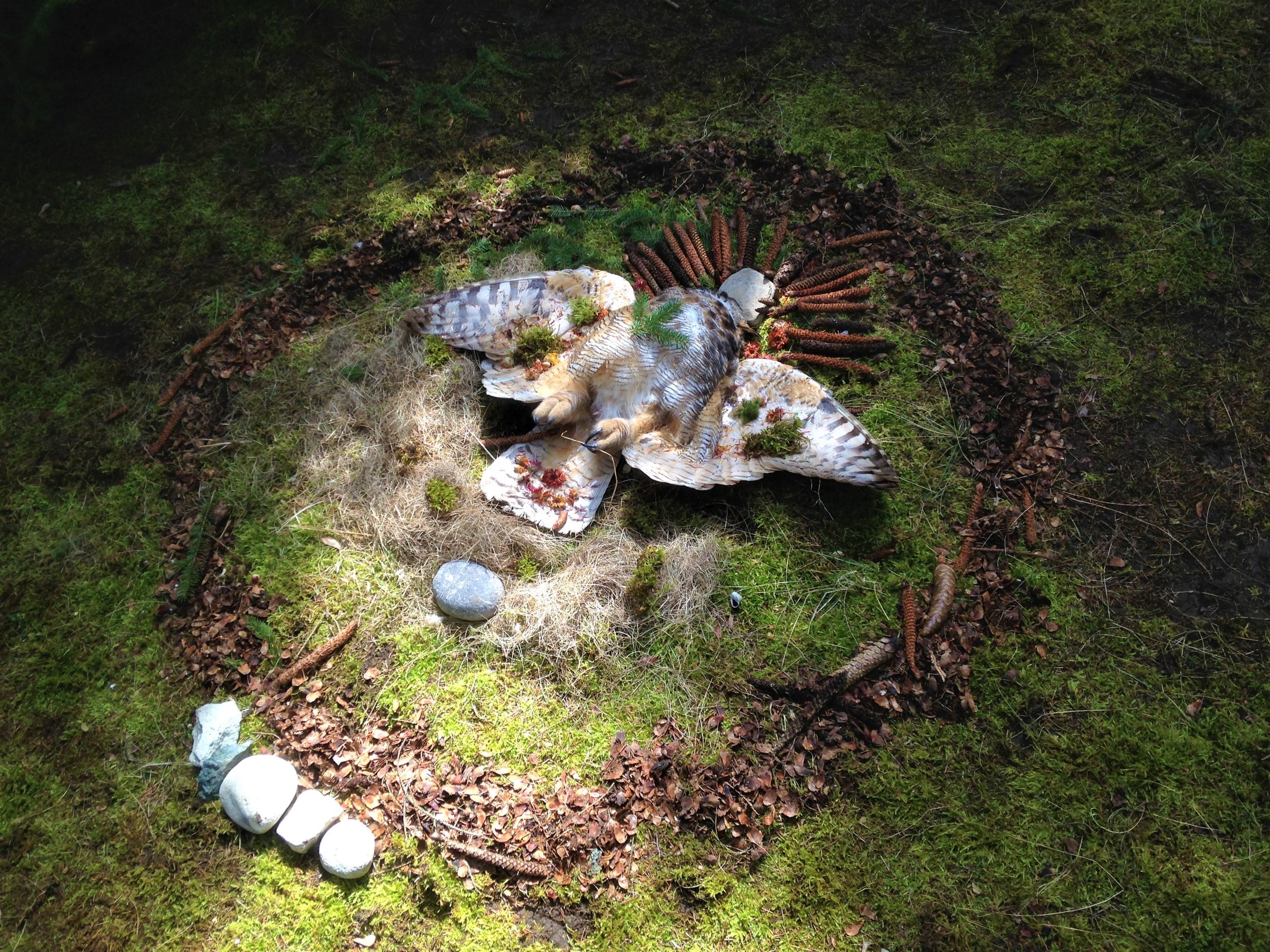
Ep. 200 : Lessons From A Dead Owl
This episode is a bit of a vulnerable one. I talk about some profound lessons which really impacted me, and shook some of my self image. I also feel a bit exposed by acknowledging I have honestly received some profound lessons from interactions with a dead Great Horned Owl.
Essentially the show is about theft, and honouring our values & commitments to the world around us, and how we want to be in relationship with those we share this world with and with those whom we teach and mentor. I feel that this story telling is because I did something I believe to be a grievous and intentional act against another, but it is also about learning from my mistakes and working towards repair.
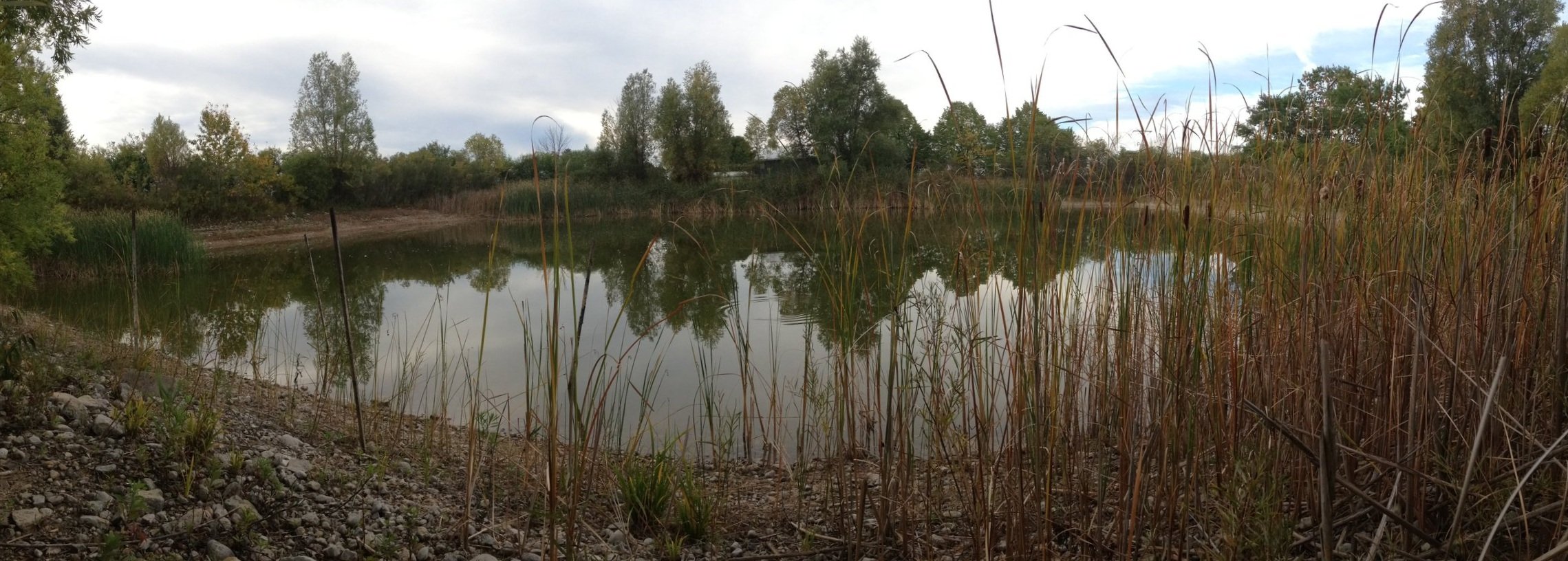
Ep. 197 : Sit Spots
It’s easy, pretty accessible and turns out to be a lot of fun and often full of learning. A sit spot, or magic spot, or secret spot or whatever else you might call it is simple. Just go find your sit spot, close to home, accessible and easy and then sit there, quietly.
Nature is everywhere, and we can notice it in all sorts of ways. Be it our balcony, backyard or a bench at the park. Find a spot you can go to reliably and find a nice place to sit.
Doesn’t really matter where you are even. Friends have done sit spots from their kitchen windows, from their prison cells, from balconies 9 stories up. It is an extremely valuable practice that I would wholly endorse to anyone seeking to learn more about the land.
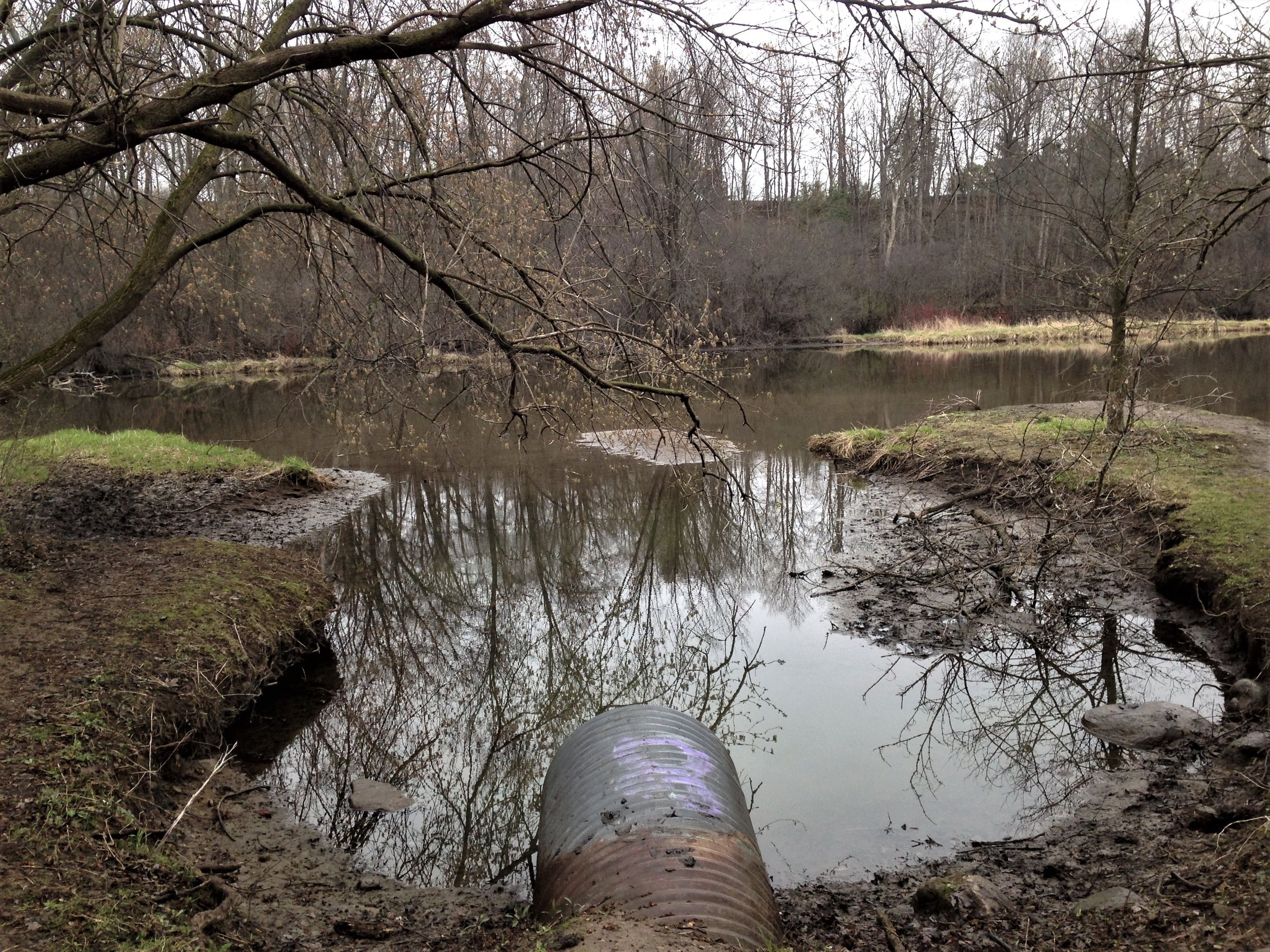
Ep 187 : Listening to the Spring Frogs and Birds
The other-than-human world is alive and breathing. They sing and mate and eat and die, just like us. We honour all the varied stages of our human lives through words and song, of which we record, archive, teach and celebrate, so why not them? Sure we use our languages to speak to their lives, but wouldn’t it be nice to allow them to sing their own songs and for us to pay attention as we would our own? I certainly think so.
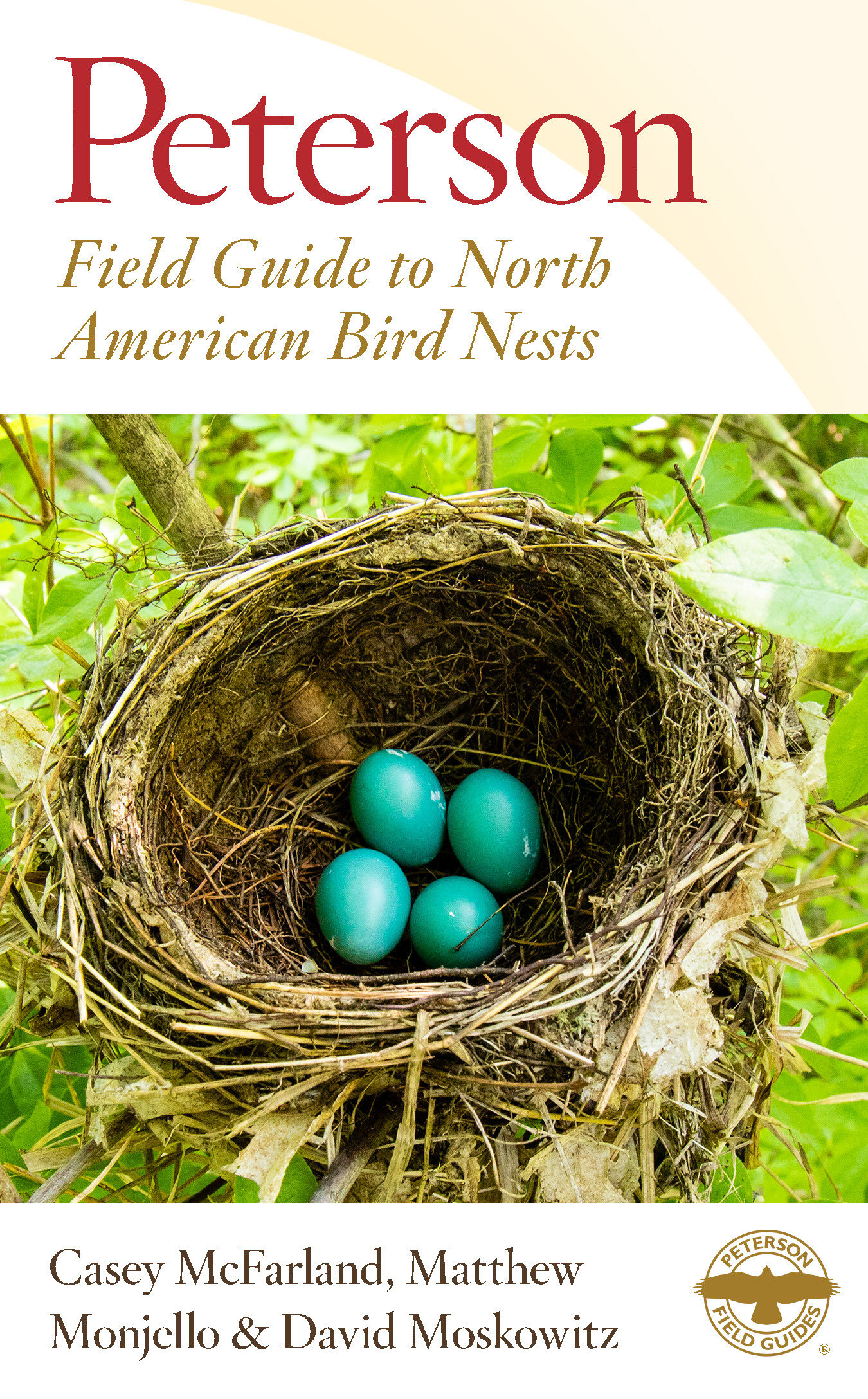
Ep. 168 : Peterson Field Guide to North American Bird Nests with Casey McFarland
Casey McFarland, Matthew Monjello & David Moskowitz have come together to revamp the Peterson Field Guide to Bird Nests. In one (kinda thick) package they managed to fit descriptions of over 650 bird species along with beautiful high quality photos of many examples of the varied avian architectures discussed.
Casey McFarland joined me for a great conversation on what it took to make the book happen. We discuss the legacy Hal H. Harrisons work and how his book inspired a lot of what Casey, Matt, and David wrote, but also they were determined to find new practices that weren’t as invasive in their search for beautiful shots of nests and eggs.
Shout outs to Matt Monjello and David Moskowitz who could not be apart of the interview.

Ep. 160 : Bird Collective
Tina and Angie are “the Wizards behind the curtain” of an awesome company based out of Brooklyn called Bird Collective. They make beautiful patches, t-shirts, sweaters and hats and more celebrating birds from across the continent while also donating 20% of the proceeds to conservation organizations and other projects that help make the world of birding more accessible to everyone.
Our outfits show who we are and what we’re into. Why not make it count by sporting a fav pastime of birding, and by supporting amazing conservation projects?

Other platforms where you can listen to the show :
As well as : Breaker : Overcast : Pocket casts : RadioPublic



